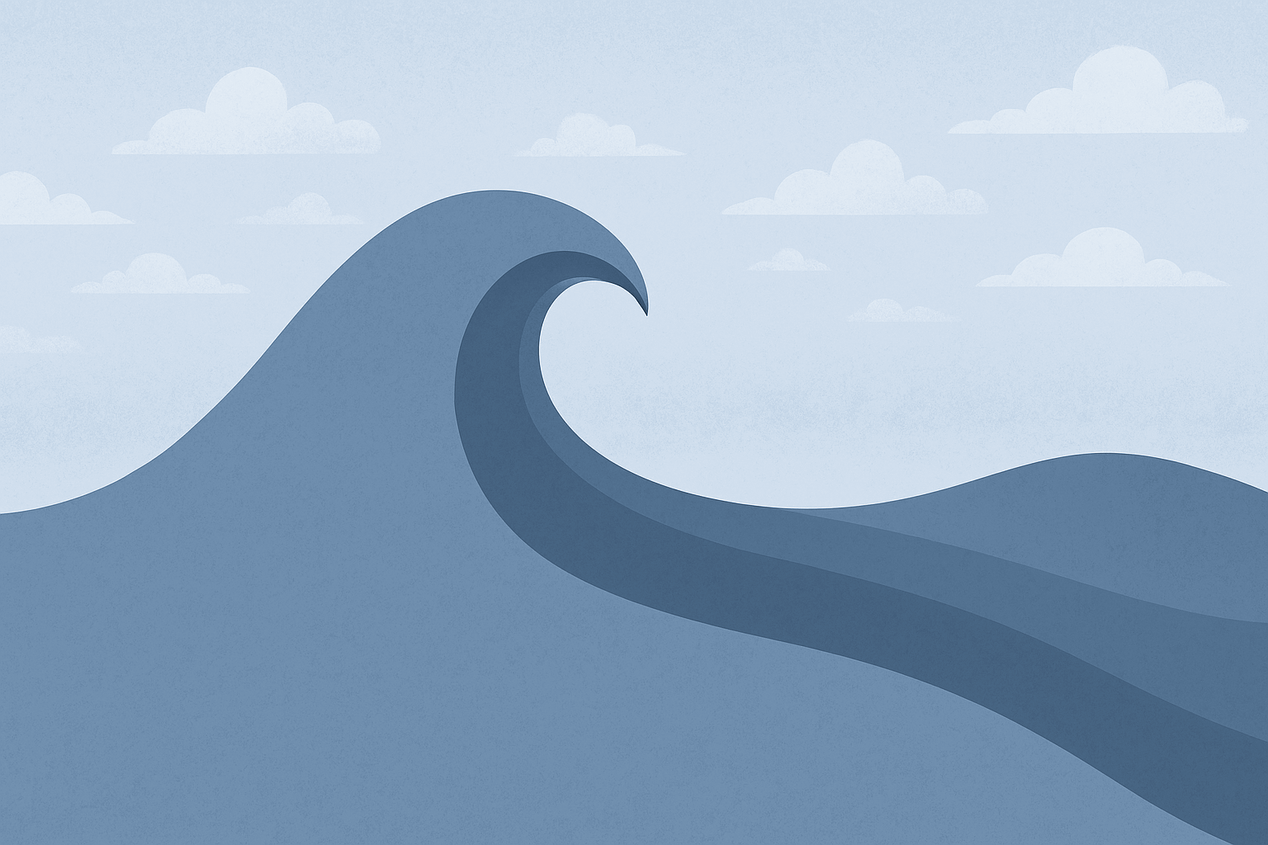The Product Wave: Flowing Through Planning, Surge, and Steady State
This article explores product development through the metaphor of a wave, illustrating the transition from planning to surge and finally steady state. It offers a visual and conceptual framework to understand how teams navigate intensity, collaboration, and long-term stability.

In product development, the terms planning, surge, and steady state often describe phases of activity and resource allocation across the lifecycle of a product or initiative. Here's how each typically plays out:
1. Planning Phase
This is the strategic groundwork of product development. It typically includes:
- Defining objectives and scope. What problem are we solving? Who is the target customer?
- Market research. Understanding user needs, competitor offerings, and industry trends.
- Resource planning. Budgeting, staffing, tooling, and setting timelines.
- Risk assessment. Identifying potential obstacles and how to mitigate them.
- Roadmapping. Establishing milestones, dependencies, and deliverables.
Result: A clear, validated plan that aligns stakeholders and prepares the team for execution.
2. Surge Phase
This is the high-intensity execution period, often marked by:
- Rapid activity and development. Fast-paced building, testing, and iteration.
- Cross-functional collaboration. Engineering, design, marketing, and operations working closely together.
- Problem-solving under pressure. Tackling bugs, scope changes, and integration challenges.
- Temporary scaling of resources. Increasing team size, budget, or tooling to meet critical deadlines.
Result: Delivery of a major product milestone, such as a launch, release, or pilot.
3. Steady State Phase
This is the post-launch or maintenance phase, characterised by:
- Operational stability. Monitoring performance, uptime, and user feedback.
- Incremental improvements. Minor updates, optimisations, and feature enhancements.
- Support and maintenance. Bug fixes, customer support, and documentation.
- Efficiency focus. Streamlining processes and reducing costs.
Result: Sustained product value with predictable resource usage and performance.
Conclusion
Think of product development as like a wave:
- Planning is the build-up before the wave rises.
- Surge is the crest, full of energy and momentum.
- Steady state is the calm after the wave, smooth and controlled.
